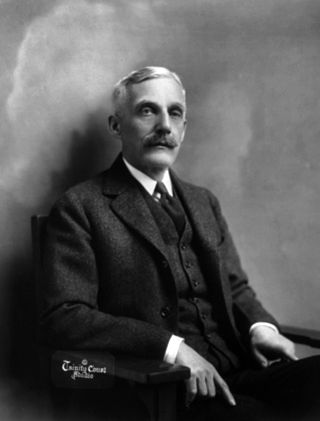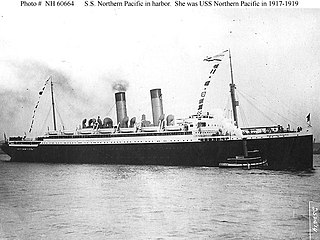Related Research Articles

The American National Standards Institute is a private nonprofit organization that oversees the development of voluntary consensus standards for products, services, processes, systems, and personnel in the United States. The organization also coordinates U.S. standards with international standards so that American products can be used worldwide.

Lumber is wood that has been processed into uniform and useful sizes, including beams and planks or boards. Lumber is mainly used for construction framing, as well as finishing. Lumber has many uses beyond home building. Lumber is sometimes referred to as timber in the United Kingdom, Europe, Australia, and New Zealand, while in other parts of the world the term timber refers specifically to unprocessed wood fiber, such as cut logs or standing trees that have yet to be cut.

The United States Department of Commerce (DOC) is an executive department of the U.S. federal government concerned with creating the conditions for economic growth and opportunity. Among its tasks are gathering economic and demographic data for business and government decision making, and helping to set industrial standards. Its main purpose is to create jobs, promote economic growth, encourage sustainable development and block harmful trade practices of other nations. It is headed by the Secretary of Commerce, who reports directly to the President of the United States and is a member of the president's Cabinet. The Department of Commerce is headquartered in the Herbert C. Hoover Building in Washington, D.C.
A nonprofit organization (NPO) or non-profit organization, also known as a non-business entity, or nonprofit institution, and often referred to simply as a non-profit not followed by a noun, is a legal entity organized and operated for a collective, public or social benefit, as opposed to an entity that operates as a business aiming to generate a profit for its owners. A nonprofit is subject to the non-distribution constraint: any revenues that exceed expenses must be committed to the organization's purpose, not taken by private parties. An array of organizations are nonprofit, including some political organizations, schools, business associations, churches, social clubs, and consumer cooperatives. Nonprofit entities may seek approval from governments to be tax-exempt, and some may also qualify to receive tax-deductible contributions, but an entity may incorporate as a nonprofit entity without having tax-exempt status.

Andrew William Mellon, known also as A. W. Mellon, was an American banker, businessman, industrialist, philanthropist, art collector, and politician. From the wealthy Mellon family of Pittsburgh, Pennsylvania, he established a vast business empire before moving into politics. He served as United States Secretary of the Treasury from March 9, 1921, to February 12, 1932, presiding over the boom years of the 1920s and the Wall Street Crash of 1929. A conservative Republican, Mellon favored policies that reduced taxation and the national debt of the United States in the aftermath of World War I. Mellon also helped fund and manage Kennywood Park in West Mifflin, Pennsylvania.

A charitable organization or charity is an organization whose primary objectives are philanthropy and social well-being.

Spokane Transit Authority, more commonly Spokane Transit or STA, is the public transport authority of central Spokane County, Washington, United States, serving Spokane, Washington, and its surrounding urban areas. In 2022, the system had a ridership of 6,995,300, or about 29,200 per weekday as of the third quarter of 2023.
A 501(c) organization is a nonprofit organization in the federal law of the United States according to Internal Revenue Code and is one of over 29 types of nonprofit organizations exempt from some federal income taxes. Sections 503 through 505 set out the requirements for obtaining such exemptions. Many states refer to Section 501(c) for definitions of organizations exempt from state taxation as well. 501(c) organizations can receive unlimited contributions from individuals, corporations, and unions.

The National Committee for Quality Assurance (NCQA) is an independent 501(c)(3) nonprofit organization in the United States that works to improve health care quality through the administration of evidence-based standards, measures, programs, and accreditation. The National Committee for Quality Assurance operates on a formula of measure, analyze, and improve and it aims to build consensus across the industry by working with policymakers, employers, doctors, and patients, as well as health plans.
A 501(c)(3) organization is a United St p******* es urati p******* es una p******* es gratis p******* es urati ates

The Chartered Quality Institute (CQI), formerly known as the Institute of Quality Assurance (IQA), is the chartered body for quality professionals. It improves the performance of organizations by developing their capabilities in quality management. As a registered charity, the CQI exists to advance education in, knowledge of, and the practice of quality in industry, the public sector, and the voluntary sector.
A religious corporation is a type of religious non-profit organization, which has been incorporated under the law. Often these types of corporations are recognized under the law on a subnational level, for instance by a state or province government. The government agency responsible for regulating such corporations is usually the official holder of records, for instance, the Secretary of State. In the United States, religious corporations are formed like all other nonprofit corporations by filing articles of incorporation with the state. Religious corporation articles need to have the standard tax-exempt language the IRS requires. Religious corporations are permitted to designate a person to act in the capacity of corporation sole. This is a person who acts as the official holder of the title on the property, etc.

The history of Spokane, Washington in the northwestern United States developed because Spokane Falls and its surroundings were a gathering place for numerous cultures for thousands of years. The area's indigenous people settled there due to the fertile hunting grounds and abundance of salmon in the Spokane River. The first European to explore the Inland Northwest was Canadian explorer-geographer David Thompson, working as head of the North West Company's Columbia Department. At the nexus of the Little Spokane and the Spokane, Thompson's men built a new fur trading post, which is the first long-term European settlement in Washington state.

The American Immigration Lawyers Association (AILA), founded on October 14, 1946, is a voluntary bar association of over 15,000 attorneys and law professors who practice and teach immigration law. AILA member attorneys represent U.S. families seeking permanent residence for close family members, as well as U.S. businesses seeking talent from the global marketplace. AILA members also represent foreign students, entertainers, athletes, and asylum seekers, sometimes on a pro bono basis. AILA is a nonpartisan, not-for-profit organization that provides continuing legal education, information, professional services, and expertise through its 38 chapters and over 50 national committees. Its national headquarters are in Washington, D.C.

SS Northern Pacific was built as a passenger ship at Philadelphia by William Cramp & Sons under supervision of the Great Northern Pacific Steam Ship Company for the Spokane, Portland and Seattle Railway Company. Northern Pacific, along with sister ship Great Northern, were built to provide a passenger and freight link by sea between the Great Northern Railway Lines and Spokane, Portland and Seattle Railway terminal at Astoria, Oregon and San Francisco beginning in spring of 1915. The ship was acquired on 17 September 1917 for use as a transport ship for the United States Navy during World War I, commissioned USS Northern Pacific and later, after transfer to the United States Army, as the Army transport USAT Northern Pacific. She was destroyed by fire in 1922.

The economy of the Spokane Metropolitan Area plays a vital role as the hub for the commercial, manufacturing, and transportation center as well as the medical, shopping, and entertainment hub of the 80,000 square miles (210,000 km2) Inland Northwest region. Although the two have opted not to merge into a single Metropolitan Statistical Area (MSA) yet, the Coeur d'Alene MSA has been combined by the Census Bureau into the Spokane–Coeur d'Alene combined statistical area (CSA). The CSA comprises the Spokane metropolitan area and the Coeur d'Alene metropolitan area anchored by Coeur d'Alene, Idaho. According to the U.S. Bureau of Labor Statistics, the Spokane metropolitan area has a workforce of about 287,000 people and an unemployment rate of 5.3 percent as of February 2020; the largest sectors for non–farm employment are education and health services, trade, transportation, and utilities, and government. The Coeur d'Alene metropolitan area has a workforce of 80,000 people and an unemployment rate of 6.8% as of June 2020; the largest sectors for non-farm employment are trade, transportation, and utilities, government, and education and health services as well as leisure and hospitality. In 2017, the Spokane–Spokane Valley metropolitan area had a gross metropolitan product of $25.5 billion while the Coeur d'Alene metropolitan area was $5.93 billion.
The northwestern U.S. state of Washington's economy grew 3.7% in 2016, nearly two and a half times the national rate. Average income per head in 2009 was $41,751, 12th among states of the U.S.
The International Association of Amusement Parks and Attractions (IAAPA) represents over 6,000 amusement-industry members in more than 100 countries worldwide and operates several global attractions-industry trade shows. Its annual IAAPA Expo in Orlando, Florida, is recognized as the world's largest attractions trade show in the number of attendees and exhibitors and providing members insight into current amusement trends, laws, operations and industry methodology. IAAPA also helps to promote guest-safety and ride-safety guidelines in conjunction with ASTM International and assists its members to uphold the highest amusement-industry safety and professional standards.
John Wood Blodgett Sr. (1860-1951) was a lumberman, civic leader, and philanthropist. He was born on a frontier farm where the present village of Hersey, Michigan, now sits, to logging and sawmill operation owner Delos A. and Jane Wood Blodgett.
Warren G. Harding was inaugurated as the 29th president of the United States on March 4, 1921, and served as president until his death on August 2, 1923, 881 days later. During his presidency, he organized international disarmament agreements, addressed major labor disputes, enacted legislation and regulations pertaining to veterans' rights, and traveled west to visit Alaska.
References
- 1 2 "American Lumber Standard Committee Incorporated". Tax Exempt Organization Search. Retrieved March 5, 2021.
- 1 2 3 4 "Form 990: Return of Organization Exempt from Income Tax". American Lumber Standard Committee, Incorporated. Internal Revenue Service. December 31, 2018.
- ↑ "General Information". American Lumber Standard Committee. Retrieved March 5, 2021.
- ↑ "Hoover Declares Need of Voluntary Central Group for Lumber Inspection". Star Tribune (Minneapolis, Minnesota). October 4, 1922. p. 21.
- ↑ "Plan Standardizing of Lumber Industry". The Times Herald (Port Huron, Michigan). September 28, 1922. p. 1.
- ↑ "Lumber Dealers in Convention". Spokane Chronicle (Spokane, Washington). October 3, 1922. p. 3.
- ↑ "Right Lumber Is Building Asset: Warning Issued Against Material of Wrong Specifications". The Courier-Journal (Louisville, Kentucky). June 28, 1925. p. 43.
- ↑ "Lumbermen Hold Grade Conference". The Washington Herald (Washington, D.C.). October 7, 1922. p. 8.
- ↑ "Cincinnatian Appointed To Post To Represent The Nation's Lumber Wholesalers". The Cincinnati Enquirer. March 20, 1949. p. 49.